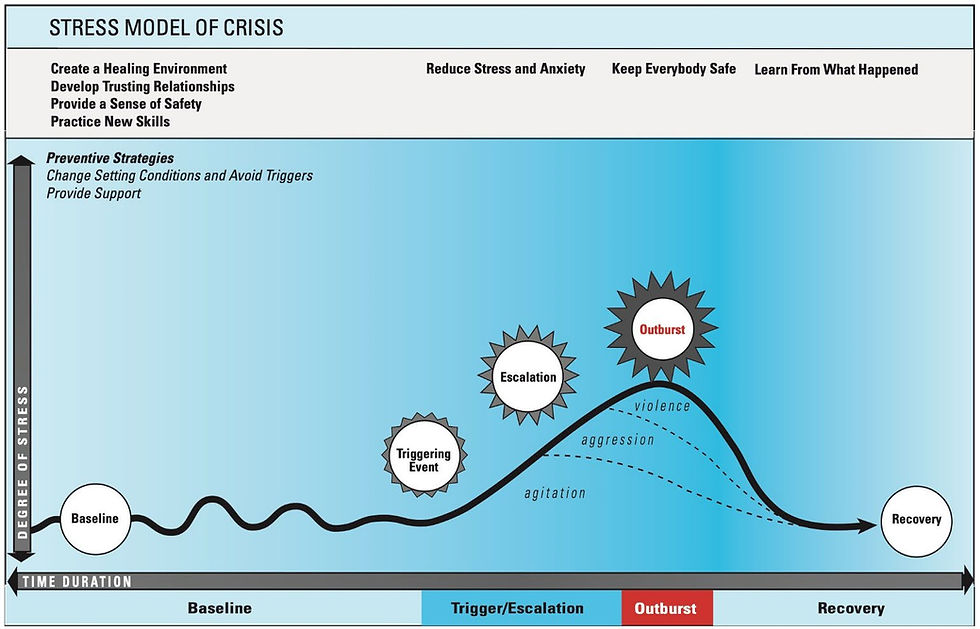Strengthening families, changing lives
Attachment, Regulation, and Competency (ARC)
Our team works under the ARC (Attachment, Regulation, and Competency) Therapeutic Model. The ARC model underpins practice across the agency, and aims to support children, young people, and carers, by strengthening their attachment and bonds, building regulation skills, and fostering resilience and recovery.
The model is trauma-informed as it aims to address not just behaviours, but an understanding of the underlying emotions, needs, and adversity of children that contribute to their experience in care. For this reason, all of our staff and carers are trained in the ARC framework.
Therapeutic Crisis Intervention (TCI
WCF has implemented Cornell University’s Therapeutic Crisis Intervention (TCI) across the agency to ensure that all staff have a universal approach and shared language when responding to behavioural concerns, crisis, or when required to provide advice to carers and stakeholders.
This evidence-based model is used to support and teach children and young people before, throughout, and following crisis. TCI aims to prevent crisis from occurring, de-escalate a potential crisis, therapeutically and safely manage a crisis situation, and support children and young people to improve their coping strategies.
TCI utilises the Stress Model of Crisis to conceptualise typical crisis events.


Clincial Services
We are proud to have a dedicated Clinical Services Team within William Campbell Foundation, who are committed to providing high quality, trauma-informed therapeutic care and interventions to address the individual needs of children and young people who have experienced trauma or adversity in their young lives.
Within our team, we have Social Workers, Art Therapists, Counsellors, and provisional Psychologists. With such knowledge and expertise spread across the team, collaborative and therapeutic support is available for our children, young people, and carers.
The Clinical Team’s aim is to build a therapeutic casework system for each child and young person in our care that strives towards a permanency placement plan with a key focus on family restoration.
The Clinical Team aims to provide the most up to date, best-practice therapeutic services available to support children and young people who have experienced trauma. The Clinical team’s services can be accessed internally through a referral from WCF’s PSP team.
%20(2).png)
Clinical Supports the team provides children, young people,
staff, families, and carers.
Positive Behaviour Support Plans
Positive Behaviour Support Plans (PBSPs) are child-focused, evidence-based, trauma-informed documents that are aimed at understanding and supporting children and young people with behaviours of concern. PBSPs are formulated with the understanding that all behaviours are communication, and it is our job as adults to be curious about the needs driving the behaviour.
Clinicians formulate PBSPs with an understanding that behaviours are often rooted in developmental trauma, unmet needs, or disrupted attachment. Clinicians formulate PBSPs through consultation and assessment to ensure the plans are tailored and specific to the child or young person, and prioritise their personal needs and safety. PBSPs heavily focus on connection and relationship, placing a huge emphasis on preventative strategies. PBSPs are informed by ARC and TCI concepts, as well as many other relevant frameworks, research, and theories, such as attachment theory.
Where a Restricted Practice is considered a necessary behaviour management strategy to prevent harm or increase wellbeing, Positive Behaviour Support Plans provide a formal, clinically-informed framework to ensure behavioural strategies are the least restrictive they can be, time-limited, and only used in conjunction with positive strategies. The PBSP supports the safe and ethical use of behavioural interventions in line with NSW Legislative requirements. PBSP’s aim to fade out the use of restricted practices – which must be approved by the Clinical team and WCF’s Principal Officer.

